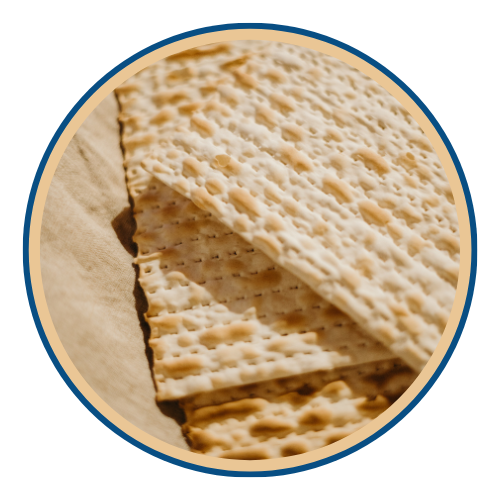
פסח
Pesach - Passover
G-d delivered the Israelites from slavery in Egypt. To save themselves from G-d's final act of judgment against the Egyptians - the death of the firstborn- the Israelites had to sacrifice an innocent lamb with no blemishes and spread its blood on their doorposts. The Angel of Death would pass over the household only if there was blood on the door. In the same way, our sin and iniquity bring judgment from God. We can escape that judgment only if we apply the blood sacrifice to our lives.
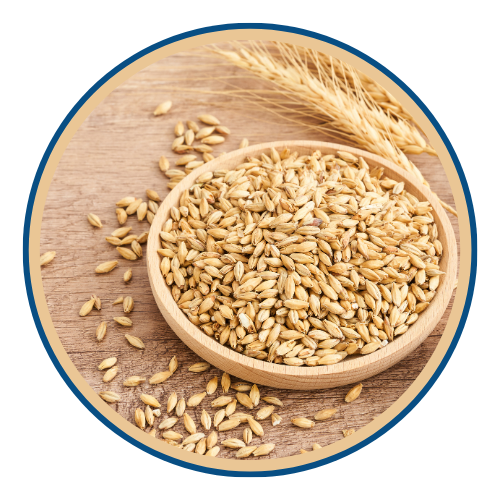
יום הביכורים
Yom Ha'Bikkurim (First Fruits)
In Israel, barley is the first crop that becomes ripe. We are to bring the first barley 'fruits' of the harvest to G-d as an offering. As G-d gives all good things to us, such as food from the ground, we are to give him the first and the best of our lives. Three days after Yeshua was crucified, he rose from the dead, serving as a spiritual first fruit. Read more about who else will rise from the dead.
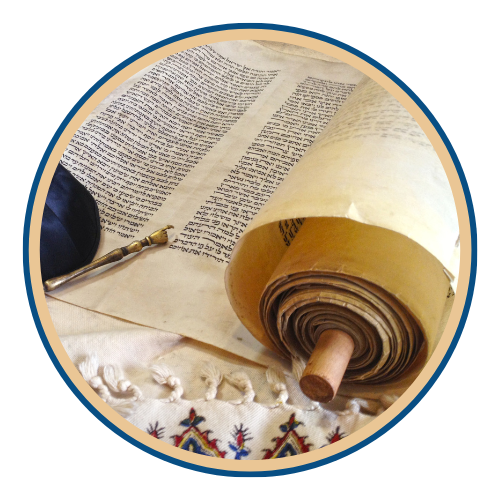
שבועות
Shavuot (Pentecost)
Traditional Jewish thought believes this is the day when the Torah, G-d's Word, was given to the Israelites at Mt. Sinai. During Shavuot centuries later, G-d's Spirit was given to His people.
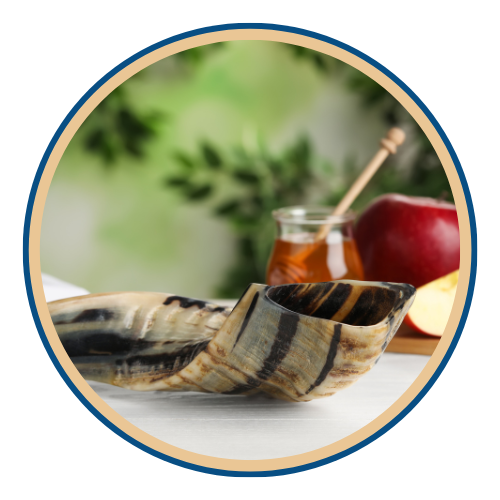
יום תרועה
Yom Teruah (Day of Blasts) Rosh Hashana (Head of the Year)
The Jewish New Year begins a ten-day period of introspection leading up to Yom Kippur. The shofar, a ram's horn, is sounded as an alarm. How have we heaved the past year? Will we be deemed worthy to be written into G-d's book of Life? Also called the Feast of Trumpets, the shofar will announce the coming of a King!
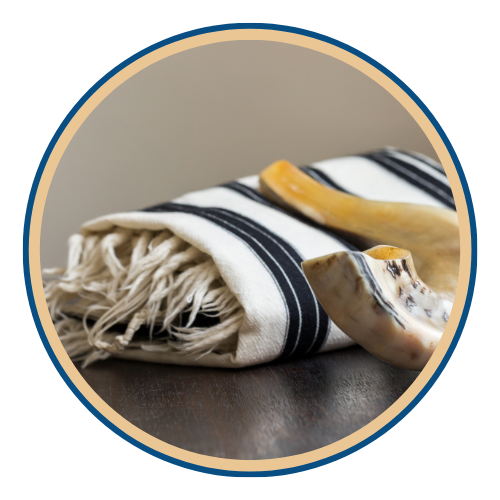
יום כיפור
Yom Kippur (Day of Atonement)
The final day of the Ten Days of Awe, Yom Kippur, is the time to make atonement for our sins and iniquity. It is a day of fasting and prayer.
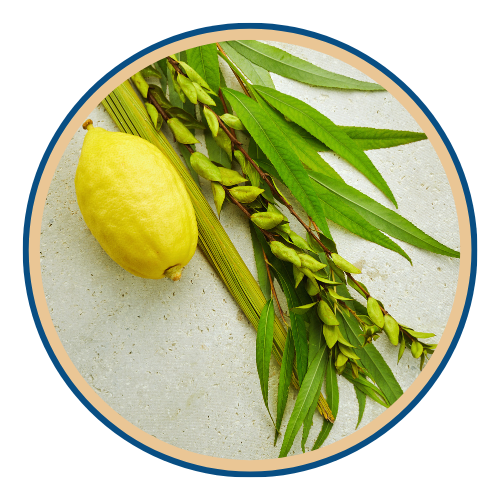
סוכות
Sukkot (Feast of Tabernacles)
Native-born Israelis are commanded to live in booths, three-sided structures topped with tree branches for seven days during Sukkot. It is a reminder of the Israelites' dependence on G-d during their 40 years in the desert. As G-d dwelled among them in a cloud by day and a pillar of fire by night, G-d will again physically dwell among us. Today many still hold this tradition in Israel and around the world.

ט"ו בשבט
Tu B'Shvat (New Year of the Trees)
The15th day of the Hebrew month of Shevat marks the "birthday" of trees so Torah-observant followers can observe Lev 19:23-25 which commands us to not eat the fruit of the trees until the third year.
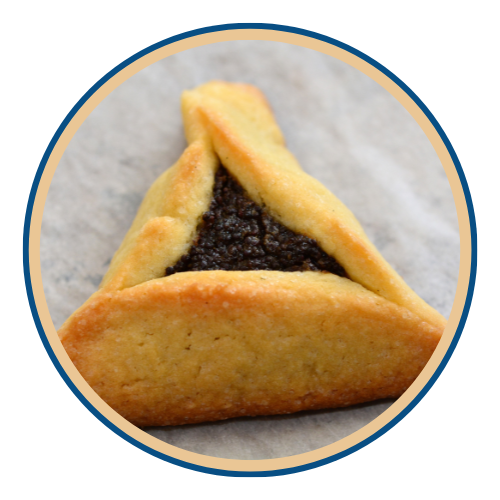
פורים
Purim (Lots)
Purim recalls the story of Esther, a Jewish woman named Hadassah who becomes queen of Persia and saves her people from genocide. (book of Esther). It's a joyous holiday that takes place annually in the Hebrew month of Adar.
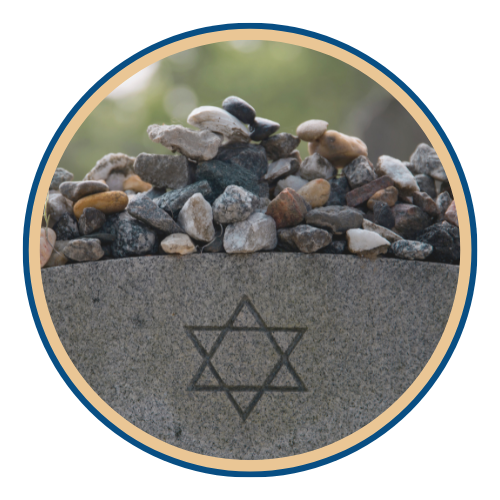
יום חשוה
Yom HaSoah (Holocaust Remembrance Day)
Yom HaSoah is an annual day of remembrance for the victims of the Holocaust. It's observed on January 27th, the anniversary of the liberation of Auschwitz in 1945.
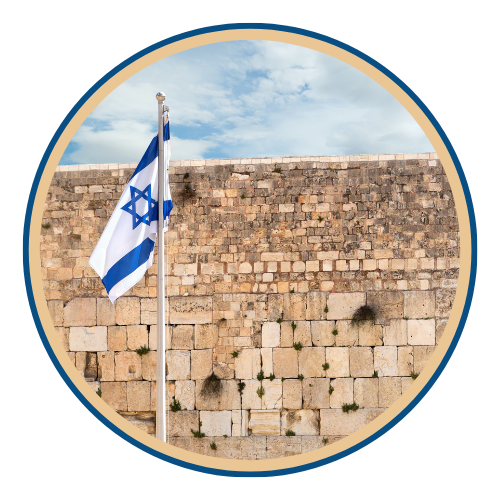
יום העצמאות
Yom Ha'Atmaut (Israeli Independence Day)
Yom Ha'Atzmaut is Israel's national day, commemorating the Israeli Declaration of Independence on May 14, 1948.

שמחת תורה
Simchat Torah (Rejoicing of the Torah)
Simchat Torah celebrates the completion of the annual cycle of reading the Torah. It's celebrated with dancing, singing, and processions.
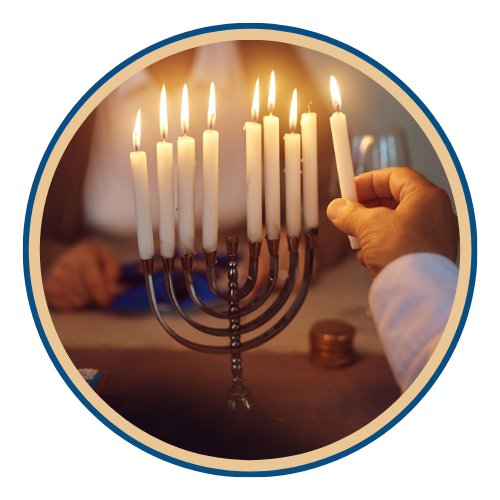
חנוכה
Hanukkah (Dedication)
Hanukkah celebrates the rededication of the Temple in Jerusalem and the victory of the Maccabees over the Syrian Greeks.
